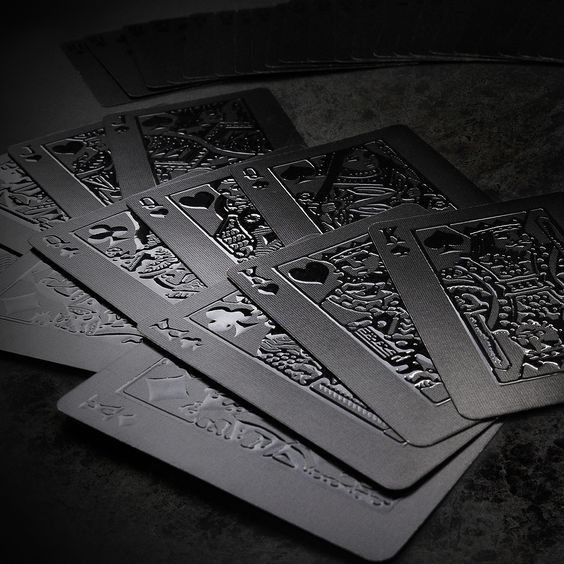Geopolitics, Image, Poker & Psychology
|#Poker #Psychology #Politics #Trump #Putin #Socrates #Rand #Aristotle
By Zy Marquiez
I was quiet, but I was not blind.”
– Anonymous
“There are two ways to be fooled. One is to believe what isn’t true. The other is to refuse to accept what is true.”
– Soren Kierkergaard
BreakawayIndividual.com
By Zy Marquiez
September 30, 2020
When you think of the game of Poker, what’s the first thought that comes to mind? Is it winning large pots? Is it Vegas? What about the psychological aspect of the game?
Similarly, have you ever pondered the image that a player portrays at the table and what that might mean in the long run for their success and failure? It’s not something often considered, but the image a poker player portrays has serious ramifications for the entire career, particularly if they play with the same players.
Interestingly enough, just like the specific type of image a poker player portrays aids in their achievements, though image alone will certainly not be the onlyaspect of a player’s repertoire that helps lead to long term successes on the poker tables, the images that politicians, establishment officials and leaders portray, all lead to successes and failures based on those perceptions.
Furthermore, the opening questions were asked because when individual players play poker regularly, or even casually, an individual can attain a better understanding of the psychology of people, interpersonal dynamics that can manifest between certain players directly, an entire table as a whole (some tables are livelier than others), ebbs and flows (running ‘hot’ or ‘cold’) and how people handle those sudden shifts, as well as how important it is to know what your image is on that table, but more on that in a moment.
In fact, sometimes I wonder what would happen if we got to see 9 of the most iconic people in the history of the world playing poker, either in a winner take all or playing on a consistent basis with many rounds to go. Who would you want to see and why?
One of the tables I imagine would have a lineup as follows: Da Vinci, Socrates, Vladimir Putin, Donald Trump, Martin Bormann, Ayn Rand, Sun Tzu, Aristotle and Bruce Lee.
Believe me, there’s a lot of other people I would also interject in there, but for now that’s a megalithically solid list of some of the most influential people in human history spanning a wide range of cultures, mindsets, and time frames. I realize their history is extensively varied, but let’s keep this discussion on Poker for simplicity’s sake.[1]
I’m sure the 9 players that each of you might envision would look different, but that’s just one of the many ‘simulations’ I would be intrigued in seeing.
Who would win? Honestly, it’s an fascinating question, but it would be hard to tell because you would have to run enough games, or enough simulations to know who the best player is. Even though on rare occasion people play simply one game of poker, most of the time when people sit down and play poker it’s an ongoing game with players coming and going that never stops, ebbs and flows, and continues until most (or all) of the money has been won by one player.
Still, eventually, one individual (or perhaps a handful) would come out winning regularly out of those 9 players based on all the games played.
And all things being equal, with each player being incredibly capable in their own right, what would be one of the most important considerations to keep in mind? That player’s image. But what do I mean by image exactly?
A poker player’s image would be the image that that individual portrays to the table, which would be mainly dictated by the amount of hands they are involved in general, but particularly the type of hands they are involved with on the flop. Additionally, the poker player’s image would be buttressed by what type of cards they showdown at the river during the course of their hands, or in other words, their winning percentage when the hands are flipped over as well as the type of holdings that they show down even when they lose.
Some players will only be involved in poker hands with premium holdings (JJ+, AQs+), winning more hands on average when going all the way to the showdown when compared to average players, which would lead that player to be seen as very tight-aggressive. In the long run, most seasoned poker players know to avoid those players because they almost always win if they’re on the river with a hand.
The best examples I can gather from the above list that would fit that bill would be Putin, Aristotle, and Ayn Rand. Geopolitically speaking, Putin almost never bluffs, and intellectually speaking, Ayn Rand’s skill as a logician is unmatched by any other woman that I’ve seen, and I just don’t see Rand as a lose-aggressive type of player, not even close. Likewise, I aver that Aristotle as a commonsensical logician would slant clearly to the tight-aggressive side rather than the loose aggressive side far more often than not.
That doesn’t mean that either one of those three individuals would be the best player, or that their geopolitical or philosophical conduct would translate directly to the poker table, but at least if poker was seen from the lens of geopolitics, philosophy and logic, then Putin, Rand and Aristotle would be tight-aggressive. And playing tight aggressive is just one of many playing styles, each of which has its strengths and weaknesses, and all of which can be employed to win regularly, though never 100% of the time as poker is a game of skill that is still at the mercy of the ebbs and flows of the cards. In other words, there’s no one way to play poker, which is why it’s such a marvelous game.
If you keep the above company in mind, way out on the opposite side of the poker player aggression spectrum you would have Donald Trump, basically hanging out on his own. Trump would easily be the most loose-aggressive player. Trump would be the player whose image is all over the place, but would mostly be seen as a cowboy that is in a lot of pots, bluffs a lot, and is capable of doing a lot of things that seem erratic at first blush, but might not exactly be erratic. Again, image.
Through a different lens, where a tight-aggressive poker player’s hand range might look something like JJ+ and AQs+, a lose-aggressive player’s hand range would be emblematic of Axs (all suited aces), Kxs (all suited kings), QTs+, 54s+ (many suited connectors or perhaps gapped connectors), and pocket pairs. Those are just some hand ranges to show what I am talking about from a mathematical perspective.
To simplify:
Lose-Aggressive image = wider range of actions, therefore being much more unpredictable.
Tight-Aggressive image = a much narrower range of actions, making that person much more predictable.
Again, these characteristics need not be strengths nor weaknesses per se, they just are, like water.
The beauty of this conundrum is that if all of the above players played in the same hypothetical poker game, and if each of them were alive at this very moment and were privy to all of the same information from an official history perspective to put it simply, they would know all of the other players very well, while also knowing that the other players know that image and could exploit it too, and that is where the real game begins.
Be that as it may, just like Putin, Rand and Aristotle, Trump’s loose-aggressive image doesn’t mean he would be the best player at all, just that a loose aggressive image is part of his playing style, if we are to see Trump through the lens of the mainstream media and many of his (geo)political stratagem.
Either way, each individual poker player has a playing style they would employ, and other styles that they might dabble in from time to time, but for the most part the poker playing style, and therefore the image a person portrays, is based on the mindset they employ, the education they had, the historical context in which they were born in, the amount of hands they have played and familiarity with the game, and the conditions that they were brought up in. There are certainly additional considerations that could partake in the image a poker player portrays and the game styles a player employs, but let’s just stay with those considerations for the time being.
And then there are the other five players, Da Vinci, Martin Bormann, Socrates, Sun Tzu and Bruce Lee. Each of the last five players would slant more in between, neither too loose aggressive, nor too tight aggressive on average, ebbing and flowing much more consistently than the others I would think, or perhaps closer to one side of the spectrum, though not quite like the initial four players. Make no mistake about it though, any of those individuals as poker players would be a force to be reckoned with at the table under any circumstance.[2]
Ultimately, whoever would win in the long run most often would be the player that not only knows their own image and how they look to the other players at the table, but can balance that image very well, know their opponents’ tendencies, know the math behind the game given poker is a math based game to a large degree, know the psychology of people, and these individuals in particular, and on and on it goes. And still, there are many other facets to players and their game-play styles and abilities.
Why so much focus on image though?
Because the image a poker player portrays, or to put it differently, the image politicians and establishment officials portray to the world, often dictate the direct moves and countermoves that others do around them, be them politically, geopolitically, culturally, etc.
And if you, as a seasoned poker player, or a veteran politician knew not only what your opponents’ usual moves were, but what their countermoves were going to be, eventually, wouldn’t you adjust your initial moves accordingly, knowing your opponents’ countermoves? I would hope so. That’s simple common sense.
The geopolitical and corporate move that individuals like Trump, Putin, Merkel, Macron, or people like Gates, Bezos and the rest choose are not only because of the images that those individuals have, or the style of statecraft they employ to be more precise, but more specifically, the countermoves being done by other political or corporate leaders on the global stage and their supporters.
It is in those moves and countermoves, that an ebb and flow takes place, not unlike the fluctuation of the waves, which sends ripples into the field of life, affecting their states, countries and corporations accordingly.
In essence, on a global stage much like in life, not everything is black and white, and what truly takes place is more along a spectrum of grays. And within that spectrum of grays that lies beyond the image of establishment officials, beyond the cookie cutter black and white images portrayed, is where the true game of thrones is played.
As famous military strategist, writer, philosopher and general, Sun Tzu once said:
“All warfare is based on deception.”
And one action that can be repeatedly seen on the global geopolitical and corporate stages is deception, a lot of deception, and all of this stems from image.
In any case, that’s the foundation regarding image, from a different perspective undoubtedly, that I wanted to set to explore future moves by establishment officials on occasion.
Ultimately, in a game of thrones that relies on deception and abject darkness to cloud an individual’s vision, a little bit of light goes a long, long way.
And there is no greater light than that of Truth.
———————————————————————————————
[1] I understand the player list is mostly males, but Poker traditionally is a male dominated sport unfortunately. I thought about swapping in Joan of Arc for one of the players, but given my closer familiarity to all of the individuals mentioned, in contrast to my lack of familiarity with the mindset of Joan Of Arc, I chose to stick with the original people chosen. Even so, lover her or hater her, Ayn Rand would employ logic to the fullest extent and represent women on that table just fine. Then again, Joan Of Arc, given her raw talent and incredible capacity would do excellent as well as an alternative.
[2] Given Socrates’ fearlessness for standing for what he believed in, I highly doubt he would simply stick to one playing style, hypothetically speaking. As such, Socrates would be unafraid of where the truth goes, which would make him want to inquire into a player’s motives for how they played their hands and playing style perhaps.
He would, in Socratic form, explore the boundaries of the players’ tendencies and through inquiry, try and figure out how to best play types of hands against specific players, not so much through the actual cards he was dealt, but through the player’s mindsets themselves. Would Socrates really do that? Perhaps, perhaps not.
To that end, I think Socrates just might be the most fluid player given the aforementioned. Sure, this argument is entirely theoretical, but given that Socrates was the living manifestation of a question mark, it’s hard to think that he might not be the one player leading the charge getting all other players to talk. About what? About everything. And in that sense, given his penchant and skillset in the art of cross examination, Socrates would know how to walk himself in and out of pots based on the responses provided by players.
I know that Socrates could have easily been argued to have a significantly tight-aggressive playing style, and that could very well be true, but for argument’s sake, I think Socrates as the archetype of inquiry would use his inquisitive process at the poker table to get to the truth, or as close as possible, and would himself slant more towards the middle between tight-aggressive and lose-aggressive, balancing out like water, though certainly to the tighter side, asking questions nonstop, and eventually exploiting what he learned.
A key consideration to ask would be: would Socrates’ be the type of person to truly exploit someone else for money? I don’t think so, but this is just having a bit of fun with wondering how Socrates might play if he did sit at a table, not if he would choose to sit, which I could see very strong arguments that he might not. Or, maybe Socrates would just play and if he won would just donate the money? Who knows? But that’s a whole different discussion and overcomplicating the issue. Plain and simple, if Socrates did sit at a poker table, he, just like everyone else at the poker table, would be a force to be reckoned with and not to be trifled with.
______________________________________
Critical Reads:
How A Generation Lost Its Common Culture by Patrick Deneen
7 Crucial Books For Homeschooling, Self-Directed Learners & Autodidacts
Catherine Austin Fitts, The Black Budget, Missing Trillions, FASAB 56 & More
A Breakaway Civilization – What It Is, And What It Means For Us by Richard Dolan
13 Great Reasons To Study Logic
Follow The Page On Facebook: https://www.facebook.com/BreakawayIndividual/
——————————————————————————————————
Suggested Reading & Viewing:
VOX Attacks Common Culture By Calling It Elitism
What Increases Your Learning Metabolism?
The True Purpose Of Modern Schooling
Logical Fallacies Employed In Every Day Life
How A Generation Lost Its Common Culture
Classrooms Of The Heart [Mini Documentary] – John Taylor Gatto
Dumbing Us Down by John Taylor Gatto
History So It Doesn’t Repeat – The Deliberate Dumbing Down Of America with Charlotte Iserbyt
Against Public Schooling – How Public Education Cripples Our Kids By John Taylor Gatto
The Catastrophic Decline of Public Schooling: 21 Facts Why School Performs Poorly
How To Read A Book by Mortimer J. Adler & Charles Van Doren
Philosophy 101 by Socrates – An Introduction To Phylosophy Via Plato’s Apology By Peter Kreeft Ph.D.
How To Read A Book by Mortimer J. Adler & Charles Van Doren
A Different Kind Of Teacher by John Taylor Gatto
Rotten To The Common Core by Dr. Joseph P. Farrell & Gary Lawrence
The Imaginative Argument – A Practical Manifesto For Writers By Frank L. Cioffi
A Workbook For Arguments – A Complete Course In Critical Thinking by David Morrow
Socratic Logic V 3.1 by Peter Kreeft PhD
Dialectical Thinking – Zeno, Socrates, Kant, Marx by Tommi Juhani Hanjijarvi Ph.D.
The Trivium – The Liberal Arts Of Logic, Grammar & Rhetoric by Sister Mary Joseph Ph.D.
Drilling Through The Core by Sandra Stotski & Contributors
Come Follow Us on Twitter – Come Like Us on Facebook
Check us out on Instagram – And Sign Up for our Newsletter




 breakawayindividual.com
breakawayindividual.com






